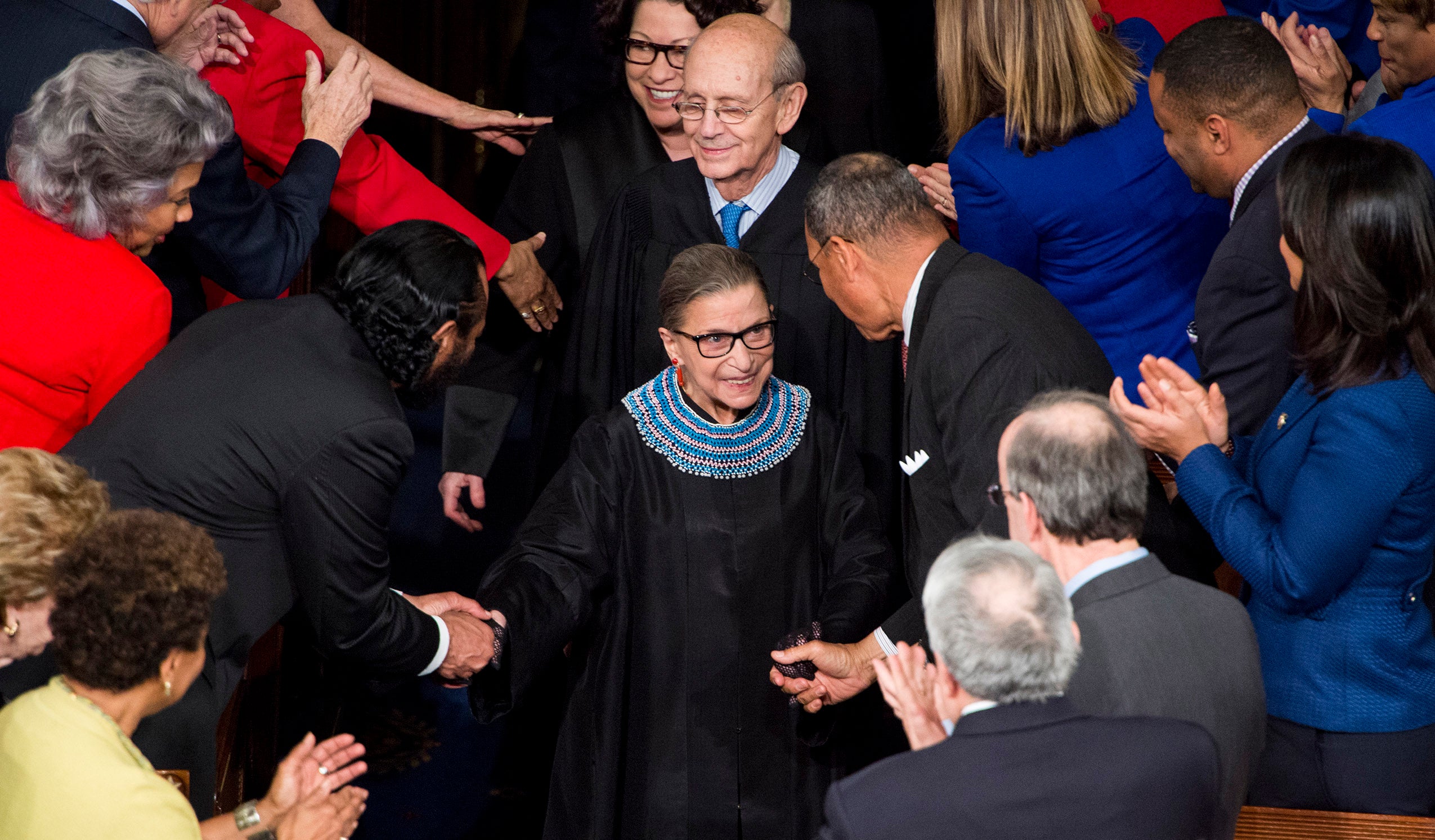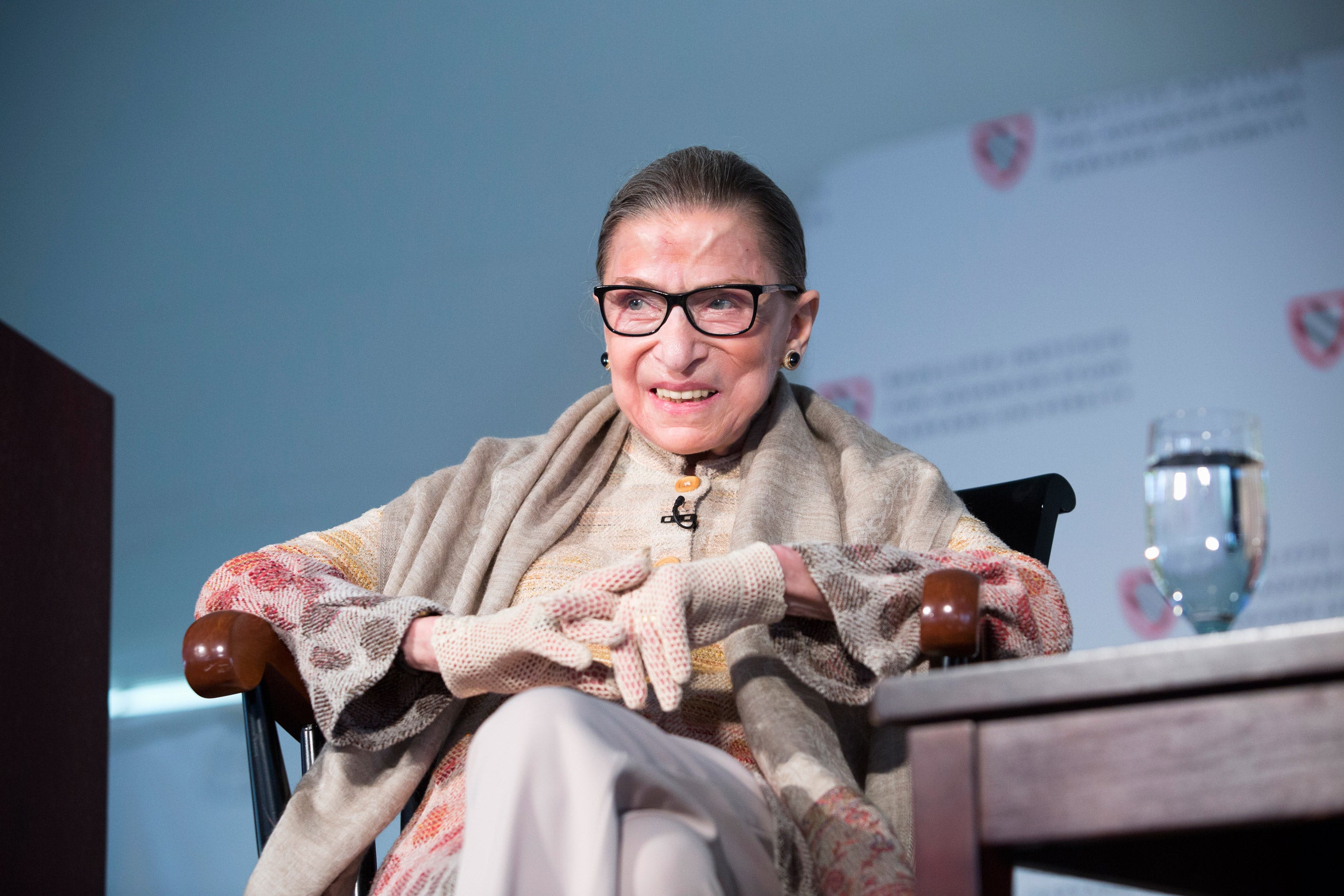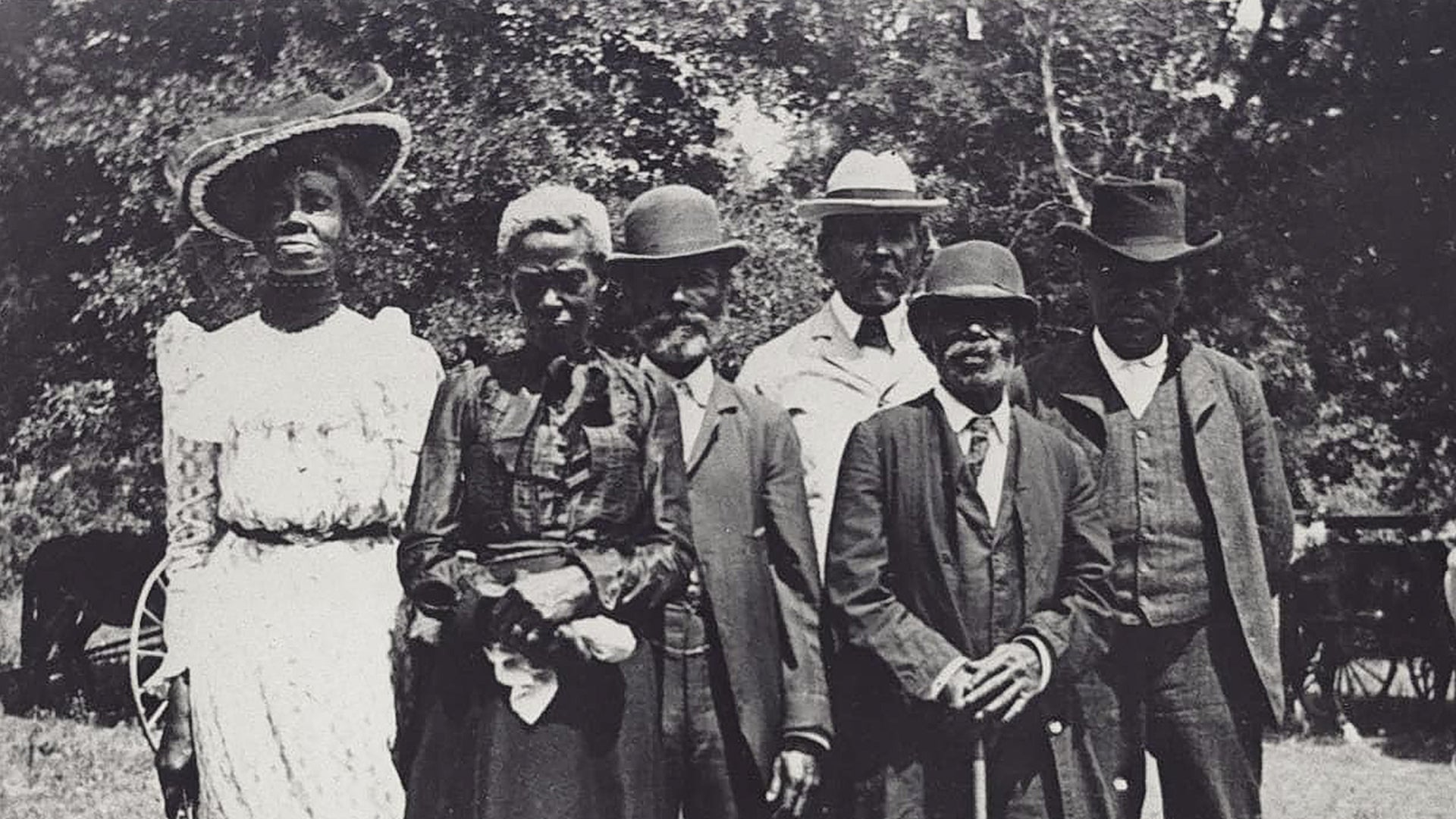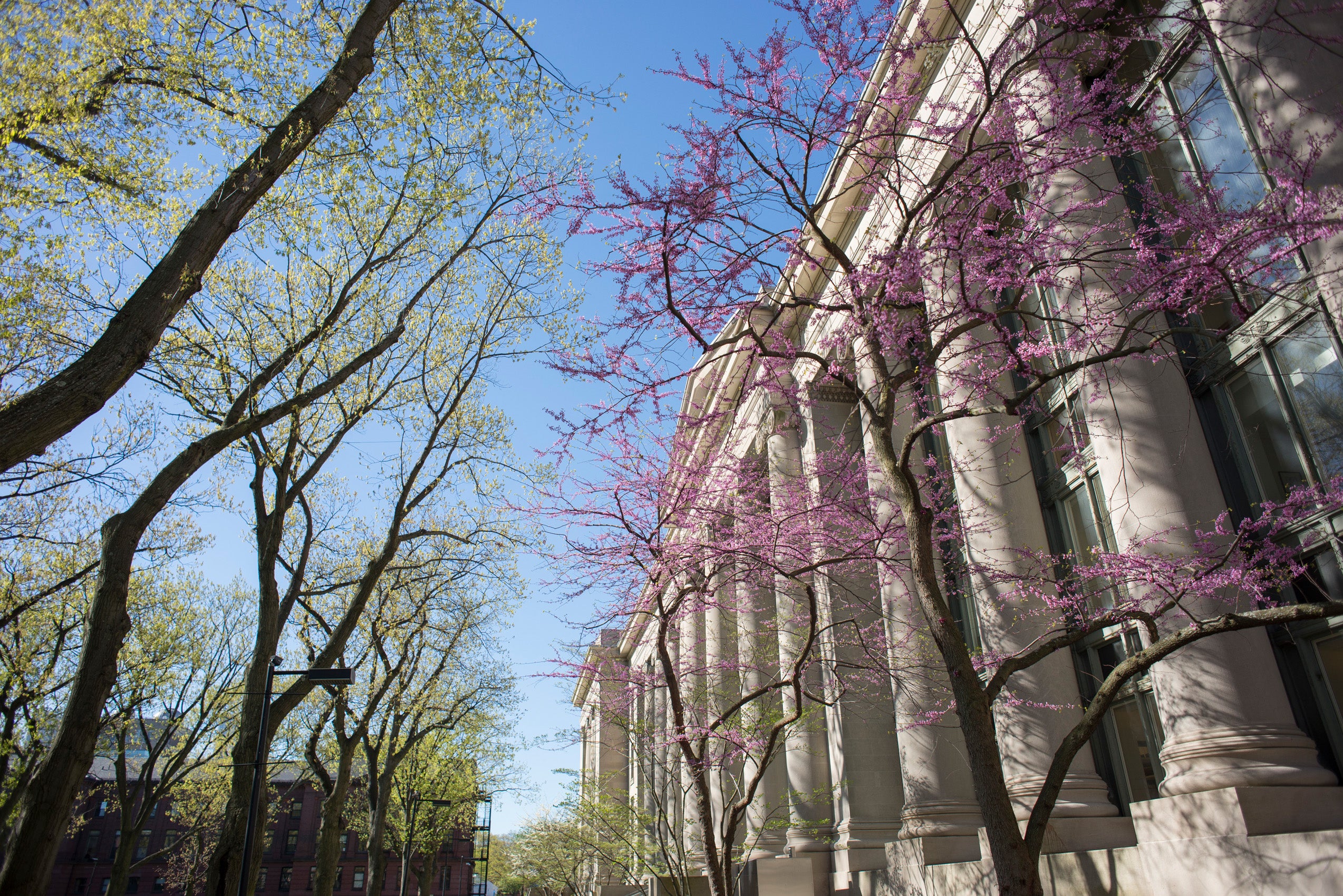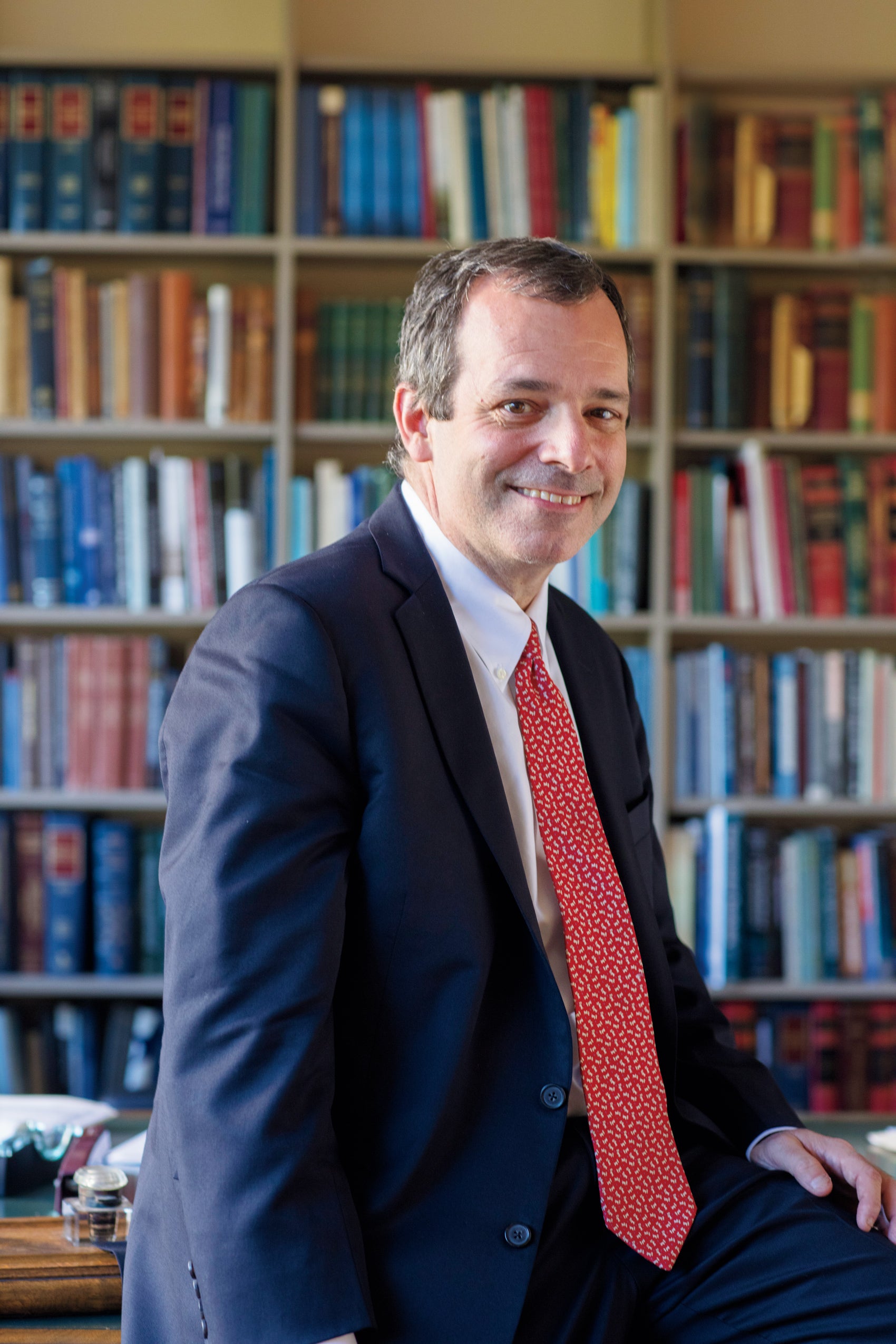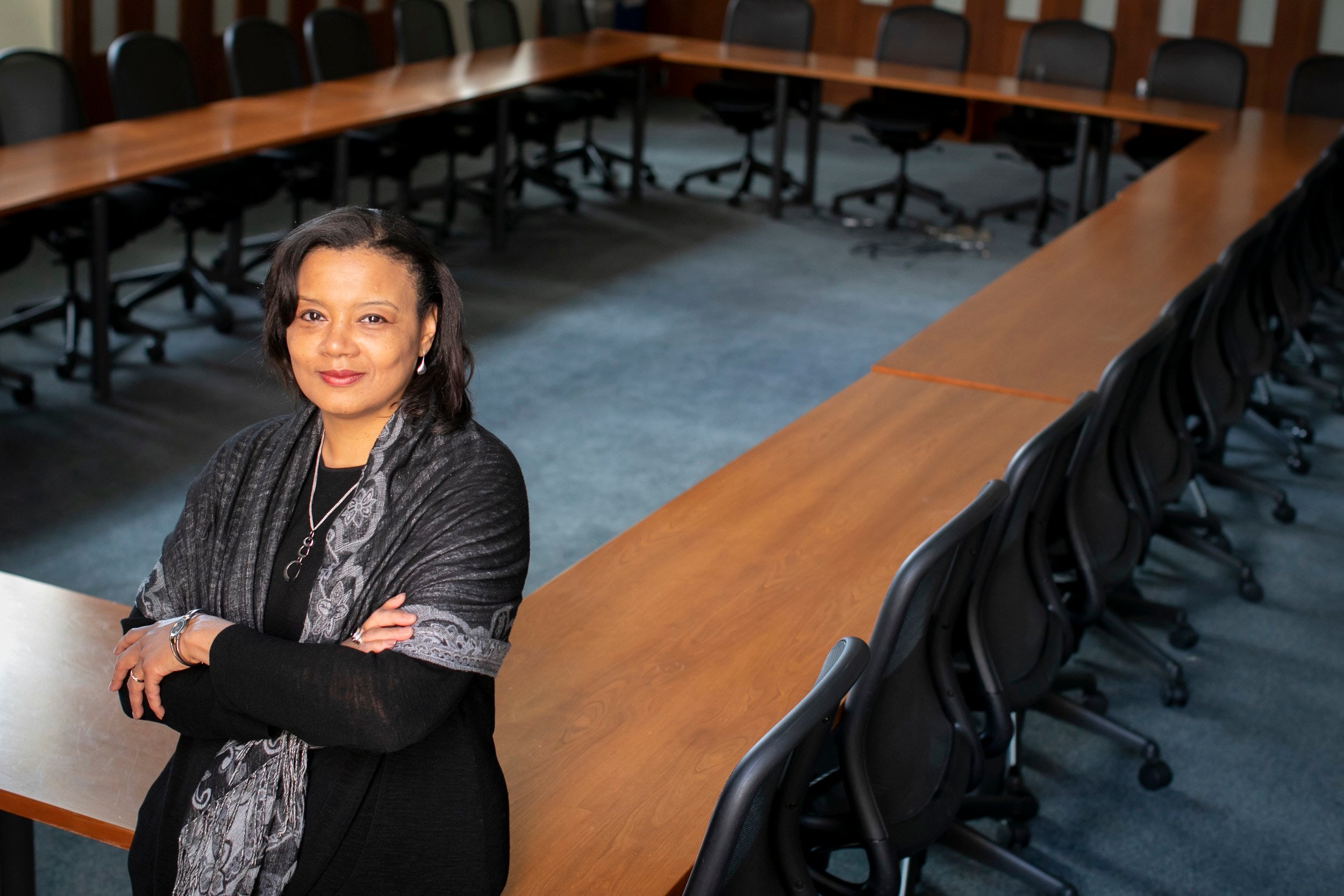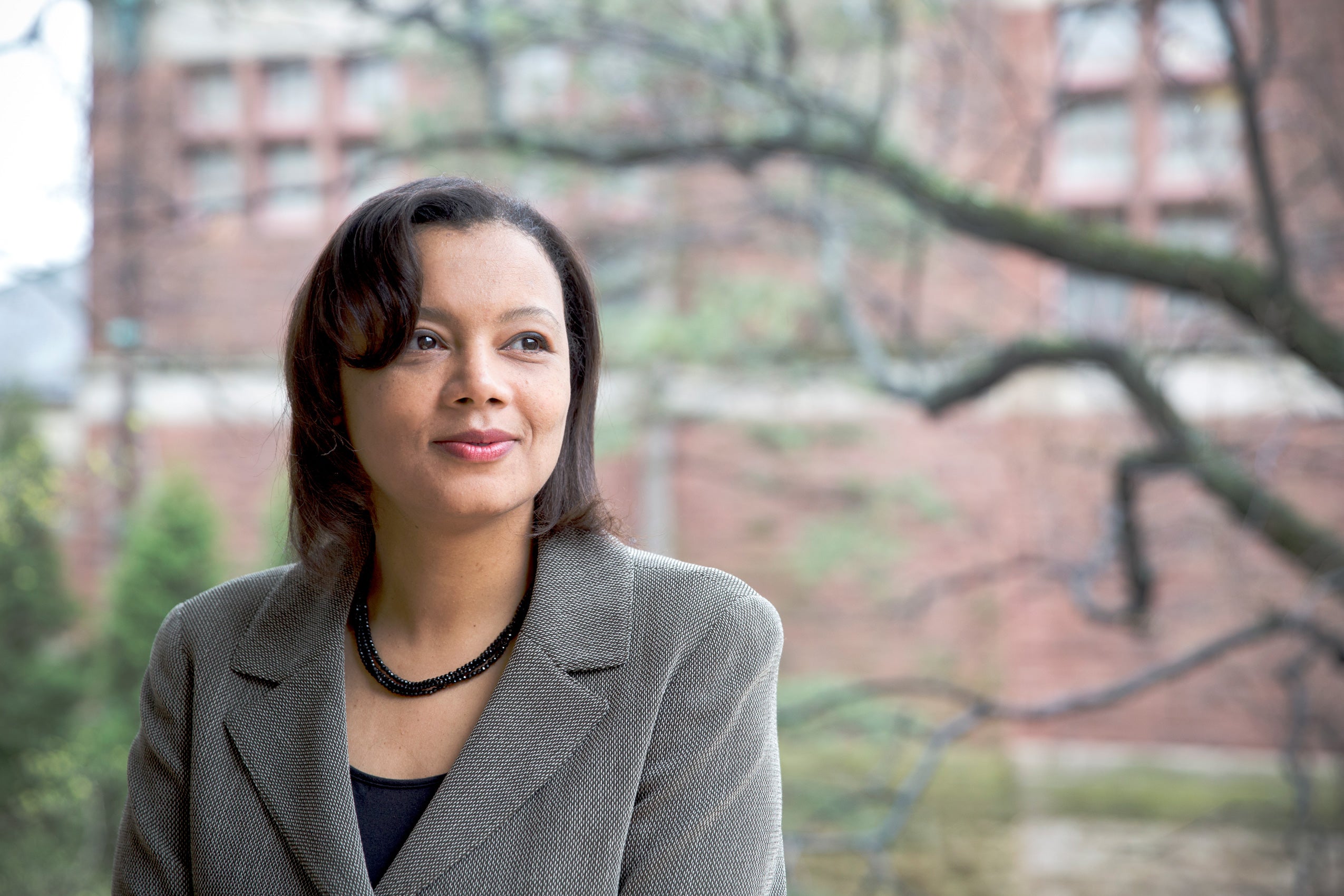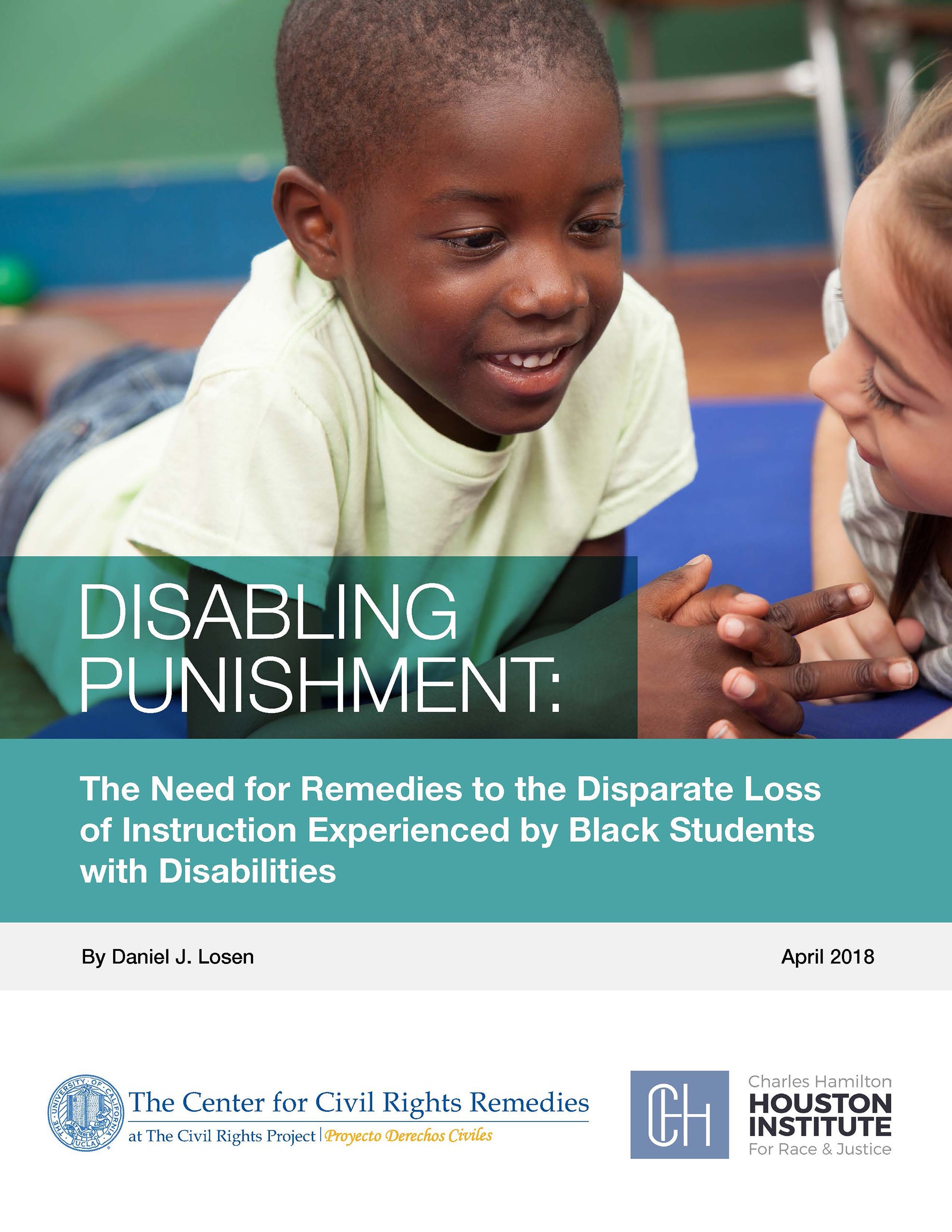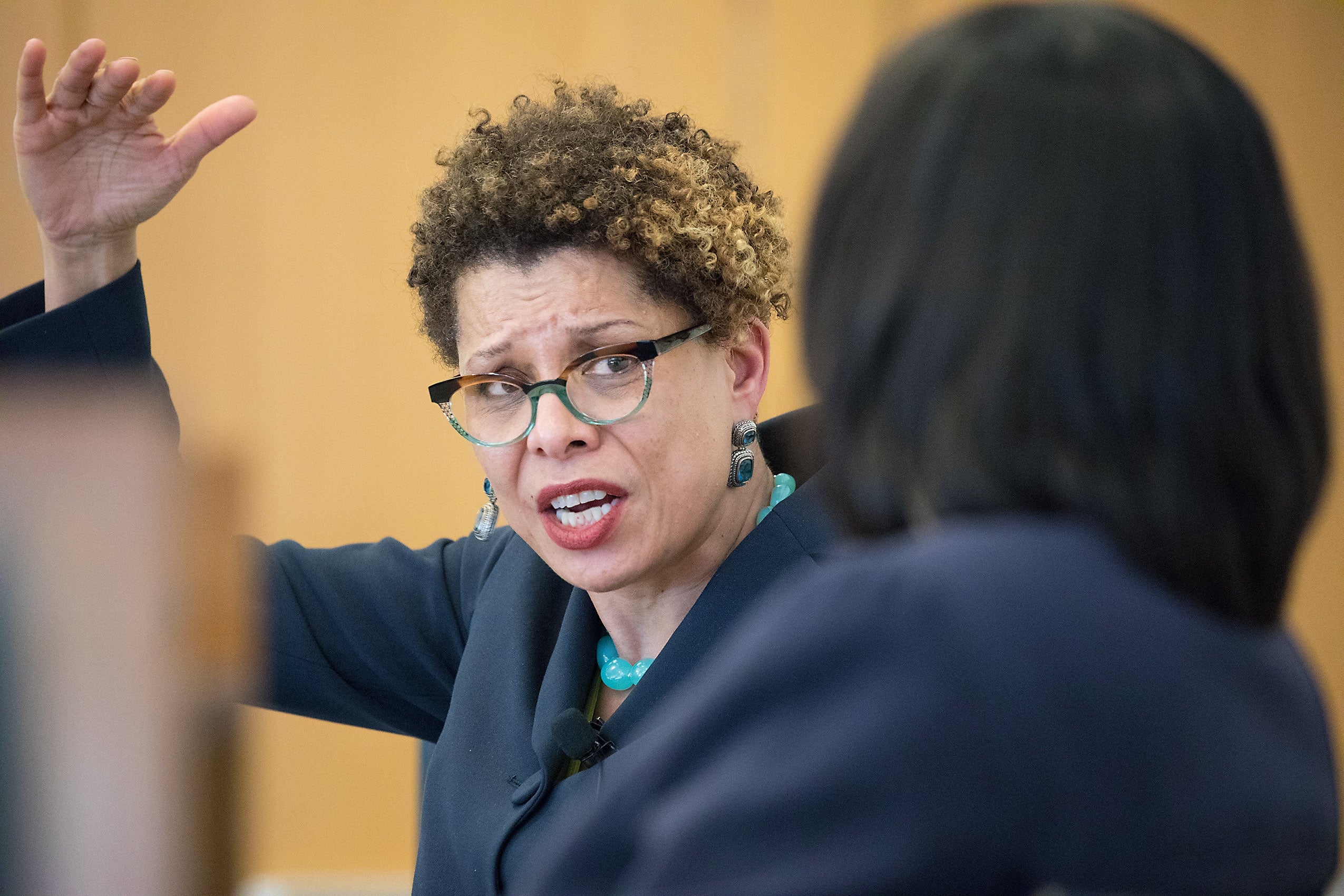People
Tomiko Brown-Nagin
-
How Amy Coney Barrett Would Reshape the Court — And the Country
September 28, 2020
Amy Coney Barrett has been a federal judge for just three years, but one thing is already certain: She’d mark a sharp turn from Ruth Bader Ginsburg on the Supreme Court. At just 48 years old, the former clerk to Justice Antonin Scalia would lock in a long-term conservative legacy for President Donald Trump, who is expected to nominate her officially this afternoon. Democrats are already anxious enough about the looming 6-3 conservative majority that they’re openly considering expanding court-packing to counter it. But what do we really know about her judicial philosophy, and how she’d rule on major issues? Politico Magazine asked top constitutional law experts and Supreme Court watchers to weigh in...Tomiko Brown-Nagin: “If confirmed, Judge Amy Coney Barrett will consolidate the conservative majority and shift the balance of power on the court decidedly to the right. She has called abortion “immoral” and written that judges are not always bound by precedent. And, consistent with the anti-abortion movement’s current strategy, she has expressed openness to hollowing out Roe v. Wade through state regulations. Justice Ruth Bader Ginsburg made a mark as a strong supporter of reproductive freedom; she consistently voted against state encroachments on Roe v. Wade. A critic of Chief Justice John Roberts’ role in the blockbuster case that upheld the Affordable Care Act in 2012, Judge Barrett is likely to give the law’s opponents a sympathetic hearing in the case pending before the court. By contrast, Justice Ginsburg, a strong voice and critical vote in support of the ACA, would almost certainly have again sustained the federal law. On the question of gun rights, Ginsburg sustained regulations, whereas Barrett has questioned the constitutionality of a categorical ban on gun ownership by felons. The contrast between the two jurists is evident on numerous other issues. Given the stark differences between Justice Ginsburg’s voting record and that of her presumed replacement, Judge Barrett’s nomination promises to transform the Supreme Court. That said, it would be a mistake to dismiss Judge Barrett as a mere partisan or a zealot; her writings bear the mark of a scholar who reasons carefully about legal cases and controversies.”
-
‘It’s hard to imagine a more consequential life’
September 25, 2020
Supreme Court Justice Ruth Bader Ginsburg’s influence on Harvard Law School runs deep. On Thursday, September 24, a star team of Harvard deans and HLS professors remembered Ginsburg as a teacher, boss, colleague, inspiration and friend.
-
‘We have lost a giant’: Ruth Bader Ginsburg (1933–2020)
September 18, 2020
U.S. Supreme Court Justice Ruth Bader Ginsburg ’56-58, whose lifelong fight for equal rights helped pave the way for women to take on high-profile roles in business, government, the military, and the Supreme Court, died on Sept. 18. She was 87.
-
An article by Tomiko Brown-Nagin: As he forced his knee into George Floyd’s neck, Officer Derek Chauvin appeared chillingly indifferent to both the law and the life hanging in the balance, even when Floyd cried out, “I can’t breathe.” And why would he worry? During his 19 years with the Minneapolis Police Department, Chauvin received numerous complaints. Despite these incidents, his career continued. He never suffered the consequences that might have prevented George Floyd’s death. The protests against police brutality triggered by Floyd’s killing are unlike anything we have seen in this country since the civil rights movement. As in the 1960s, demonstrators, and the nation, face daunting barriers to reform. Today, one such impediment is qualified immunity — a doctrine created by the US Supreme Court in 1967 to prevent frivolous litigation against government officials. It provides broad protection from civil lawsuits, including suits brought against police who violate constitutional rights. Law enforcement officers cannot be held liable for civil rights violations — including death — unless the underlying conduct “clearly” disregards the law. But the degree of clarity that courts require to permit suits for civil rights violations to proceed is excessive to the point of absurdity. The doctrine, continually expanded by the court over time, sets far too high a bar for efforts to hold officers accountable for actions that intimidate, injure, and kill. It excuses conduct, however outrageous, merely because no prior court has ruled on the precise behavior in question. The decision just two weeks ago by US District Court Judge Carlton W. Reeves, in Jamison v. McClendon, captured it all. Reeves wrote that while the civil rights of the Black plaintiff, Clarence Jamison, had been violated by white Mississippi officer Nick McClendon, “Jamison’s claim cannot proceed.”
-
‘Juneteenth is a day of reflection of how we as a country and as individuals continue to reckon with slavery’
June 19, 2020
In a Q&A, Radcliffe Dean and Harvard Law Professor Tomiko Brown-Nagin reflects on the history and relevance of June 19, 1865: "The antecedent historical event is the Emancipation Proclamation, which [President Abraham] Lincoln had signed in 1863, as the nation entered the third year of a civil war, declaring that persons held as slaves within the rebellious states were henceforth free. ...It is significant, in my view, for making a point that many civil rights scholars and scholars of social change and legal change often have made—and that is that freedom is a constant struggle. There’s no one moment in time that that would stand for the proposition that people are in fact free. It takes action over time. And every generation struggles to achieve freedom anew. But as they were in Texas, the vestiges of bondage and segregation remain intact.
-
‘Juneteenth is a day of reflection of how we as a country and as individuals continue to reckon with slavery’
June 18, 2020
Tomiko Brown-Nagin spoke with Harvard Law Today about the history of Juneteenth and its particular relevance more than 150 years later.
-
Three Harvard Law School faculty members—Nancy Gertner, Tomiko Brown-Nagin and David Barron—have been elected as members of the American Academy of Arts and Sciences.
-
In prisons, a looming coronavirus crisis
April 7, 2020
As the world scrambles to respond to the coronavirus pandemic, Harvard experts across the University are trying to help one of the most vulnerable populations survive the crisis. More than 75 faculty members from the Harvard T.H. Chan School of Public Health and Harvard Medical School sent a letter Tuesday to Massachusetts Gov. Charlie Baker urging him to reduce the state’s incarcerated population, a group that could be particularly subject to the rapid spread of COVID-19...On Tuesday, the Massachusetts Supreme Judicial Court heard arguments in a petition by the state’s public defenders, various district attorneys, and the ACLU of Massachusetts, among others, seeking the release of vulnerable inmates and pretrial detainees. Add to those voices that of Tomiko Brown-Nagin, dean of the Radcliffe Institute for Advanced Study, who supports the release of certain inmates and says that the current crisis reflects the history of the nation’s unfair treatment of those too long considered “outcasts.” “There was no sense that they needed to be treated humanely, no guarantee of safe, sanitary conditions, or adequate medical care under the law until the 1960s, in the context of Civil Rights and prisoners’ rights movements,” said Brown-Nagin, who is also the Daniel P.S. Paul Professor of Constitutional Law at Harvard Law School. “It was only in ’60s that the Supreme Court and then the lower courts determined that prisoners do not lose their constitutional rights when they enter these institutions.”
-
Harvard Explores Slavery Connections Further
November 22, 2019
President Lawrence S. Bacow emailed the community on November 21 to announce an “initiative on Harvard and the legacy of slavery,” backed by an initial $5 million in funding and overseen by a faculty committee led by Radcliffe Institute dean Tomiko Brown-Nagin, Paul professor of constitutional law and professor of history. ... Joining Brown-Nagin and Beckert on the presidential committee are: Annette Gordon-Reed, Warren professor of American legal history and professor of history; ... Martha Minow, 300thAnniversary University Professor (former Law School dean);
-
Places we love
May 22, 2019
People from the Harvard community share their favorite spots on campus. ... Samantha Power, Anna Lindh Professor of the Practice of Global Leadership and Public Policy, Harvard Kennedy School, Professor of Practice, Harvard Law School: There is no more peaceful place for me around campus than sitting at the bar at Charlie’s, drinking a pint and eating grilled cheese as I watch the Red Sox game. ... Tomiko Brown-Nagin, Dean, Radcliffe Institute for Advanced Study; Daniel P.S. Paul Professor of Constitutional Law; faculty director, Charles Hamilton Houston Institute for Race & Justice; co-director of Harvard Law School’s Program in Law and History; and professor of history, Faculty of Arts and Sciences, Harvard University: I love the sunken garden in Radcliffe Yard. It’s so beautiful and peaceful and brings to mind happy times.
-
Four deans, and their journeys
May 22, 2019
The Gazette sat down recently for an in-depth interview with four Harvard deans, Tomiko Brown-Nagin, dean of the Radcliffe Institute for Advanced Study, Claudine Gay, Edgerley Family Dean of the Faculty of Arts and Sciences, and Bridget Terry Long, dean of the Graduate School of Education, who were all named to their posts in 2018, and Michelle Williams, who became dean of the T.H. Chan School of Public Health in 2016. The wide-ranging discussion focused on topics that included their personal inspirations, their thoughts on leadership, and their efforts to support one another.
-
In Their Own Words
January 29, 2019
From algorithmic price discrimination to intellectual property and human rights to Indian Nations and the Constitution
-
John Hopkins University professor Martha S. Jones spoke about the history of birthright citizenship in the United States at an event held at the Harvard Law School Wednesday. The talk, hosted by the Charles Hamilton Houston Institute for Race and Justice, garnered a crowd of about 75 attendees. Jones, who teaches history, also discussed her book “Birthright Citizens: A History of Race and Rights in Antebellum America,” which she published in May. Dean of the Radcliffe Institute for Advanced Study Tomiko Brown-Nagin introduced Jones and said the topic of the talk is “timely” given President Donald Trump’s announcement last week that he is considering an executive order that would end birthright citizenship in the United States.
-
Manning elected to American Law Institute
August 1, 2018
The American Law Institute has elected John Manning ’85, Harvard Law School Morgan and Helen Chu Dean and Professor of Law, as a member. Manning and four Harvard Law School graduates were five of 34 new members elected this year.
-
Court to receive motions in admissions lawsuit
June 15, 2018
A federal court in Boston will receive motions for summary judgment on Friday in a lawsuit involving Harvard College’s admissions process that experts say could reshape the nation’s higher education landscape and undermine efforts to foster diverse student communities at colleges and universities across the country. A trial date has been tentatively set for October...Assessing the 2016 ruling, Tomiko Brown-Nagin, incoming dean of the Radcliffe Institute for Advanced Study and Daniel P.S. Paul Professor of Constitutional Law at Harvard Law School, said, “Once again you had a decision upholding a state’s interest in pursuing educational diversity, and upholding the limited use of holistic admissions.” Yet given the narrow way in which the court has tailored previous rulings, Brown-Nagin added that colleges and universities “certainly should be aware that they need to not only endorse the educational benefits of diversity but show that the way in which they are implementing their mission is consistent with the law, that it’s fair, and that applicants are not being denied opportunities based on race.”
-
On the anniversary of Brown v. Board of Education, the Harvard Gazette sat down with Tomiko Brown-Nagin, Daniel P.S. Paul Professor of Constitutional Law at Harvard Law School and faculty director of the Charles Hamilton Houston Institute for Race & Justice, to discuss Houston’s role and influence in the Civil Rights Movement.
-
Brown-Nagin named Radcliffe dean
April 26, 2018
Tomiko Brown-Nagin, a leading historian on law and society as well as an authority on constitutional and education law and policy, has been named dean of Harvard’s Radcliffe Institute for Advanced Study, Harvard President Drew Faust announced today...“I am honored and excited to have the opportunity to lead the Radcliffe Institute, whose mission to bring scholars together across disciplinary and professional boundaries I enthusiastically embrace,” said Brown-Nagin...“Tomiko Brown-Nagin is a brilliant legal historian who is deeply committed to the project of interdisciplinary work. In her time at Harvard Law School, she has been a wonderful teacher of our students, superb leader of the Charles Hamilton Houston Institute, and invaluable institutional contributor,” said John F. Manning, the Morgan and Helen Chu Dean and Professor of Law at HLS.
-
Brown-Nagin named Radcliffe dean
April 26, 2018
Tomiko Brown-Nagin, a leading historian on law and society as well as an authority on constitutional and education law and policy, has been named dean of Harvard’s Radcliffe Institute for Advanced Study, Harvard President Drew Faust announced today.
-
“Disabling Punishment: The Need for Remedies to the Disparate Loss of Instruction Experience by Black Students with Disabilities,” a new report from the Charles Hamilton Houston Institute for Race & Justice at Harvard Law and UCLA’s Center for Civil Rights Remedies, finds dramatic racial discipline disparities between black children with disabilities and their white peers.
-
A Moment Or A Movement? What’s Next For March For Our Lives
March 28, 2018
Tens of thousands of people in Massachusetts participated in the March for Our Lives on Saturday, rallying on the Boston Common against gun violence and for stronger gun control laws. The protesters were energized and determined, but we've also been here before...Tomiko Brown-Nagin is a professor of history and law at Harvard University who studies social movements. She agrees that this march feels like it could lead to real change. She says timing is critical, citing examples like the Civil Rights Movement, and protests of the Vietnam War, which had power in part because of their timing. This movement, she notes, is happening in the run-up to the midterm elections. "The midterm elections give people the opportunity to express their disdain for what some believe is political indifference to the problem of violence by handguns and by assault weapons," Brown-Nagin says.
-
Georgetown University Professor Sheryll D. Cashin ’89 delivered the Francis Biddle Memorial Lecture at Harvard Law School on Feb. 28 on “The Descendants: From Slavery to Jim Crow to Dark Ghettos, A Call for 21st Century Abolition.”
